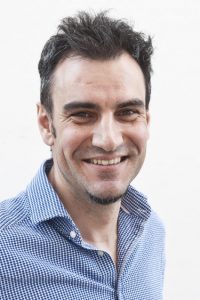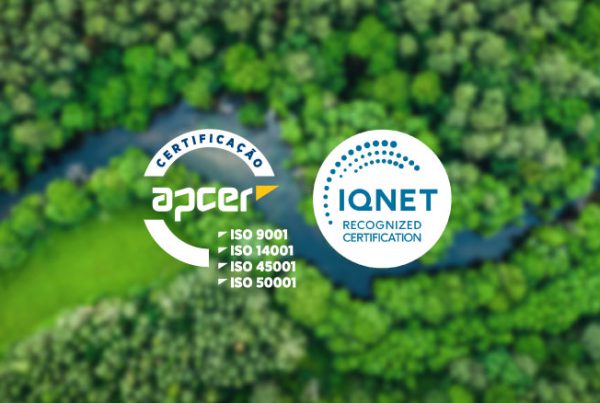A Project that aims a Quality, Inclusive and Digital Education for everyone, no exception
Education is a Universal Right and plays a crucial role for the development of a human being, assisting the individual through the building of a personality and character.
Even in a context of confinement and taking in consideration the Council of Europe’ s Recommendations relating to Education in Prisons and European Prisons’ Rules, all citizens have the exact same rights when it comes to Education and the access to Education.
As we know, confinement means losing some of our Rights, indeed, but those same Rights do not extend to Education, as far as possible, in particularly, because Education and Training in this context tends to be a catalyser of social reintegration and of mitigation of recidivism rates.
Education in this context of confinement must have a quality and quantity’ s level of demand as high as the education system outside prison; this means training must be uniform to the one enabled outside the detention facilities.
Considering the restrictions these individuals regarding the access to the learning activities promoted inside the Higher Education Institutions, in Europe some projects of Distance Education Courses and eLearning have been promoted inside the detention facilities. Among those projects are ELIS in Germany and Austria, IFI – Internet for Inmates in Norway and Virtual Campus, from United Kingdom that is a digital platform, whose purpose relies on managing the different needs of inmates who have a secure access to specific contents presented in a “whitelistâ€.
In Spain, as a result of the partnership between the Department of Justice and some Higher Education Institutions, such as the Universidad Nacional de Educación a Distancia (UNED) or the Universitat Oberta de Catalunya (UOC), inmates have been having the opportunity of attending Higher Education’s courses within this academic regimen.
Portugal is also investing in the education and training of its imprisoned population. For that, in April 2016 Universidade Aberta (UAb) and the Direção Geral de Reinserção e Serviços Prisionais (DGRSP) formalized a Protocol, highlighting the need and commitment to create and develop a Virtual Campus designed for the imprisoned population, which guarantees a secure access for the development of education and training activities rooted in Distance Education Courses and eLearning (Clause 2nd – Cooperation). Following this commitment and dedication, an innovative pilot project, the Campus Digital EDUCONLINE@PRIS, is on motion, aiming to promoting education and training inside the Portuguese prisons.
Operating since early November 2018 in the prisons of Custóias-Porto, Paços de Ferreira and Santa Cruz do Bispo-Porto (for Female inamtes only), the Campus has an internet aggregator portal, an information system, which interconnects with the Universidade Aberta’s eLearning platform with a System of Management of Lifelong Learning courses and a Repository of Content and Resources that allows users to access academic and digital citizenship contents.
Concerning the technological solution for the eLearning system, and with the assistance of jp.ik and Fundação Altice, which provided laptops and the broadband network, a secure internet connection has been implemented which guarantees the full control and monitoring of access, and students have a profile that does not allow them to communicate online with the academic community (teachers and students), but only allows the access to the Campus and to the three platforms.
With the creation of this Digital Campus of Education, Training, Employability and Digital Citizenship was intended, in addition, to access to degree-granting courses lifelong learning, to promote digital inclusion through the use of digital technologies and empower receivers for entrepreneurship and mechanisms for creating self-employment as instruments of social inclusion.
The Virtual Campus is expected to be fully operational from October 2019 in about 20 prisons on the continent and in Azores, also a result of the support provided by the Secretaria Regional da Ciência e Tecnologia dos Açores.
We hope this project will be able to answer some of the challenges that the digital society and new technologies put e-learning bring to the table for Distance Education Courses and eLearning, especially in contexts of a high-level of social vulnerability, such as the imprisoned population. We hope this project will actively contribute to ensuring the Universal Right of access to education, therefore, complying with the respect for the all individuals’ Human Rights, whether they are in prison or not.
Building this Campus is a complex and transversal challenge and its growth has been enhanced and “inspired†by projects, such as digital Inspire.
Therefore, we do believe this project will contribute to express the mission of digital Inspire and Universidade Aberta, which goes so far beyond political and geographical boundaries or the walls of a prison, creating the conditions for everyone to (really) can get a proper education.

José António Moreira is the Director of the Regional Delegation of Oporto and the Executive Coordinator of the Unity of Development of Local Centers of Learning, in Universidade Aberta.
He holds a PhD and master’s in Educational Sciences from the University of Coimbra and a Post-Doctorate in Educational Technologies and Communication also from the University of Coimbra.
António has a Master in Multimedia from the Faculty of Engineering of the University of Porto and a Degree in Art History from the Faculty of Arts of University of Coimbra.
He is Professor of the Department of Education and Distance Learning (DEED) of Universidade Aberta (UAb). He is the Scientific Coordinator of the Mobile Unit of Research in Local Studies (ELO) and a researcher at the Center for Interdisciplinary Studies of the 20th Century (CEIS20) of the University of Coimbra and the Laboratory of Distance Education and eLearning (LE@d) from UAb.
He coordinates the Pedagogy Studies Center at Higher Education (NEPES) based at CEIS20 and he has published scientific articles in specialized journals and books in the fields of Teacher Training and Digital Technologies. Finally, António has participated in national and international events as a guest speaker research, especially in the field of ​​Online Education.



